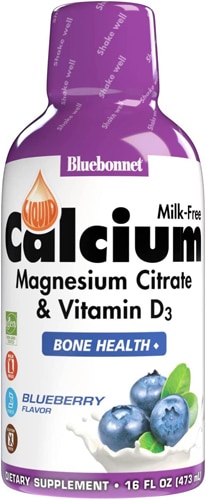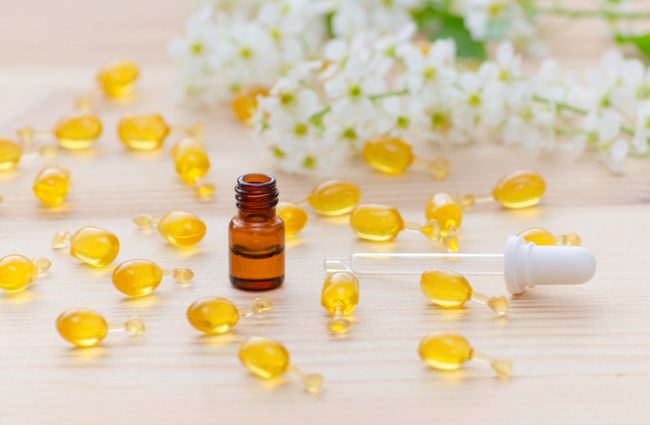From pills and powders to gummies and capsules, we’re fortunate to live in an era where vitamins come in an array of forms.
But if you’re in the market for stocking up on vitamins, the choices in formulas can be downright dizzying. Is one superior to the other? Which will be easiest to digest? And how does absorption come into play?
Whether you’re a mother or a millennial, liquid vitamins have probably captured your attention. They’ve surged in popularity in recent years, taking up a significant corner of the 36.7 billion-dollar dietary supplement market in the U.S.
The benefits of liquid vitamins
There’s a good reason for the trend. Liquid vitamins are super convenient, simple to swallow, and, oftentimes, quite economical, in that you can purchase one or two inclusive formulas rather than dozens of individual nutrients in separate bottles.
What’s more, liquid vitamins are, for many, easier to break down than a hard tablet and are thus simpler to absorb. While a number of assertions swarming the internet may be unsubstantiated—the most prevalent claim being that the Physician’s Desk Reference maintains that absorption rates of liquid formulas surpass pills by as much as 90 percent—assimilation is a large part of liquid vitamins’ appeal. Because they’re liquid, they don’t require your body to, well, do a lot to break them down. Liquid iron, for example, can be a boon for those who’ve dealt with constipation after taking iron in a hard tablet in the past.
Further, as the Dr. Rath Health Foundation reports, “liquids offer a flexibility with dosing and are very easy for most people, especially children and the elderly, to take.” Given the advancements made in the name of well-being, a number of liquid vitamins also actually taste good. (Who would have thought?)
Finding the best liquid vitamins
That said, not all liquid vitamins are created equal. Quality, packaging, additional ingredients—all are central to their effectiveness.
With that in mind, here’s what you need to know about the best liquid vitamins out there.
Supplement safety and quality
The best liquid vitamins consider safety their top concern. Keep in mind that the U.S. Food and Drug Administration, as affirmed by WebMD, “regulates dietary supplements, but the regulations for dietary supplements are different and less strict than those for prescription or over-the-counter drugs.” Thus, dietary supplement manufacturers don’t have to show that their products are safe (and effective) before putting them on the market.
Trustworthy supplement brands, however, do. Manufacturing, testing, nutrient potency—all are held to rigorous standards by reputable companies. Do your research before purchasing liquid vitamins and be sure to go with a brand with a GMP (Good Manufacturing Practices) certification on the label. Created by the National Nutritional Foods Association, this endorsement indicates that a nutritional supplement has been screened for contaminants and quality-tested.
Whole foods
Not the high-end market, mind you: The best liquid vitamins are obtained from whole foods (such as “vitamin C from acerola,” as the Alliance for Natural Health reports). The best liquid vitamins are also sourced from certified organic products—that is, non-GMO, synthetic and growth hormone-free, and devoid of artificial pesticides and fertilizers—or are what’s known as “mostly complete vitamin companies,” wherein, the ANH explains, products are made from “whole food sources and don’t contain fractionated or isolated nutrients…For instance, a product listing vitamin C on its ingredient label would offer a whole foods source ingredient like papaya.”
Sweeteners
When choosing a liquid vitamin, be vigilant about its additives. To make a formula more palatable, many include sweeteners such as corn syrup, grape juice concentrate, sugar, modified corn starch, and maltodextrin (an additive often found in sodas and candy), which can undermine their potential health benefits. Rather, search for products that use natural sweeteners like sorbitol—a naturally occurring sugar found in apples and pears—and xylitol (which, bonus points, can be less irritating to the stomach than other sugar alcohols). Also vital to avoid? Artificial ingredients like food coloring, which have been associated with adverse effects in children.
Allergen-free
And while you’re looking at that label, ensure that the product is allergen-free, meaning it doesn’t contain gluten, dairy, wheat, eggs, nuts or yeast.
Most important of all? Endeavor to eat a plant-based, organic diet that’s rich in vitamins, minerals and antioxidants. You may find the out there, but nothing trumps mindful, healthy eating.




